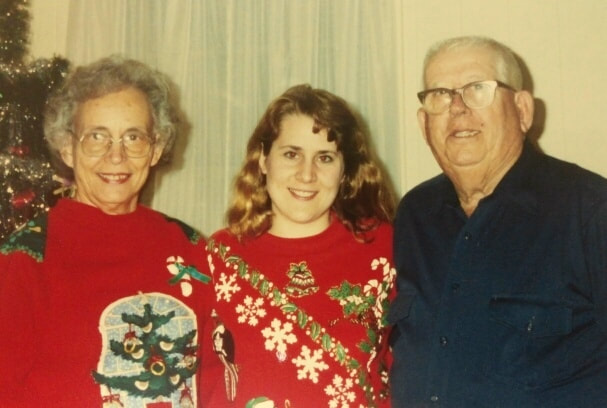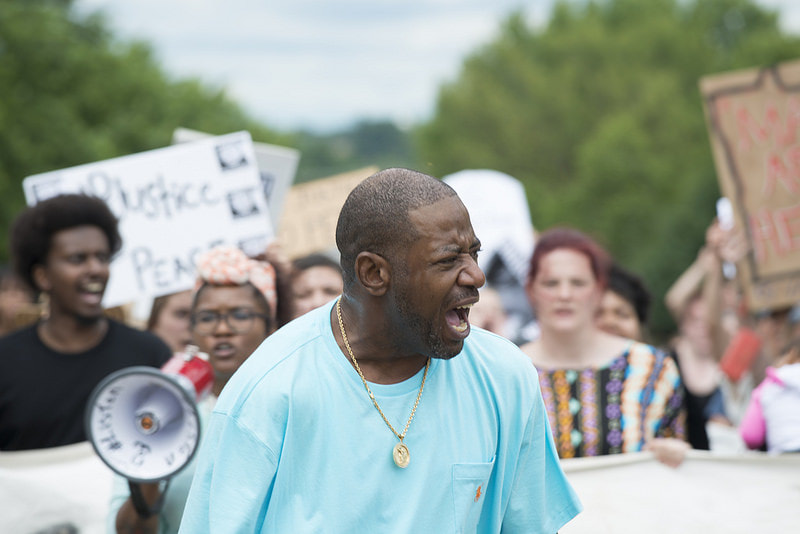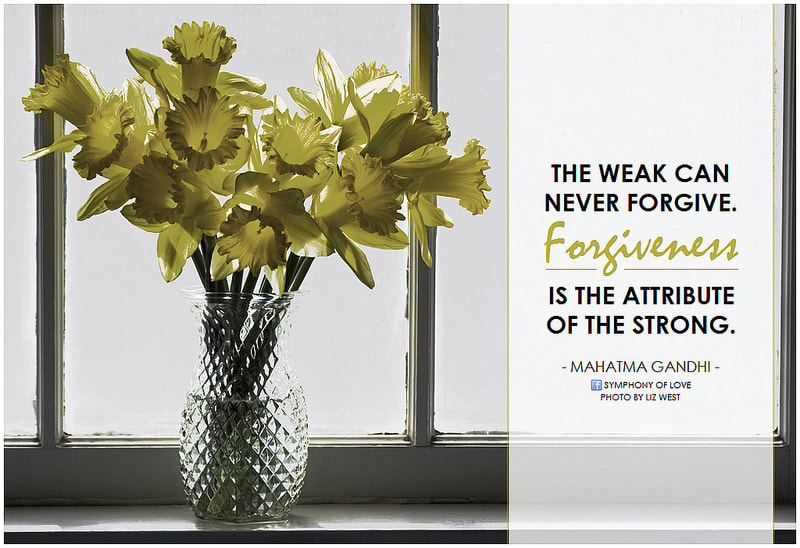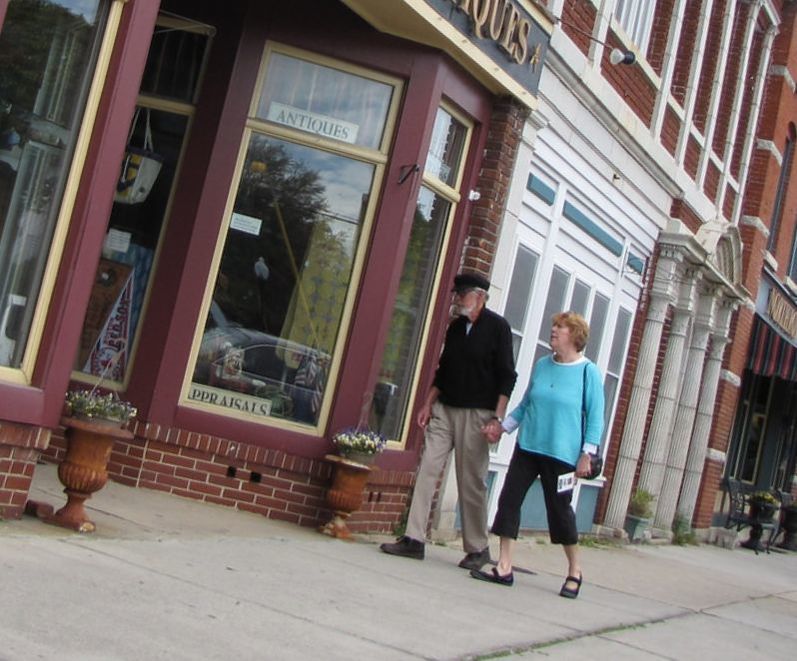- Home
- Process Worldview
- Community
- Art and Music
- Whitehead and Process Thinking
- Podcasts
- Spirituality
- Ecological Civilization
- Education
- Contact
- Social Justice
- Science
- Animals
- Sacred Poems
- Whitehead Videos
- Index of All Titles
- Practicing Process Thought
- Process Spirituality: A Spiritual Alphabet
- Recent Posts
Why Is It So Hard to Forgive? Are Baby Steps Alright?
by Teri Daily
Ephesians 4:25—5:2 |
A Sermon on Anger and Forgiveness
My grandmother was a wonderful woman—generous, loving, and forgiving. Or at least she was forgiving when it came to her grandchildren. With my grandfather she could remain angry for days on end; with my grandfather she could hold a grudge in perpetuity. She never, ever forgot a single wrong he did. In fact, I remember, on one of our trips to south Georgia, my husband Dave cornered in the kitchen of my grandparents’ restaurant, my grandmother reciting to him an oral inventory of all the wrongs my grandfather had done since their wedding day in 1941; four hours into it, she had only gotten through the first three years of their marriage. Not only could my grandmother remember every single sin my grandfather ever committed, but she could also construct a genealogy of them—she could tell you which wrong begat which subsequent wrong. For example, my grandparents used their motor home to move me up to Connecticut for medical school. They had actually owned the motor home for several years but it had never left their driveway (which is a whole other story); occasionally we would just all go out and sit in it and talk about how nice it was. So the trip to Connecticut was both its maiden and its final voyage. All this is to say that my grandfather was not experienced at driving the motor home. When we stopped at a mall along I-95 to do some necessary shopping, he drove into a parking garage not tall enough for the Winnebago and we got stuck. Immediately, my grandmother turned to my grandfather and laid out, in full, the map of his sins. “It’s all your fault,” she snapped. “If you weren’t so lazy you would have been out working on the rental property every afternoon instead of sitting on the stool in the restaurant drinking milkshakes, then you wouldn’t have gotten so fat, your clothes wouldn’t be too small, we wouldn’t have had to stop at JCPenney to buy you a new pair of pants, and we wouldn’t be in this situation to begin with.” I know that my grandmother isn’t alone in her quickness to anger and slowness to forgive. It is easy to become angry when things are not as we think they should be, and forgiveness is just plain hard. But as difficult as forgiveness is, it is crucial for the world we live in. Maybe once upon a time forgiveness was mostly a matter of private piety; today it’s possible that the survival of our planet and of the human race depends on it. Maybe that’s why I was drawn to our reading from Ephesians. Ephesians is often seen as a study in what it means to the Church, and our passage today tells us that to be the Church is to speak truth, to gain our possessions in honest ways and then share them with one another, to not sin even when we are angry, to put away all evil words as well as all bitterness, wrath, anger, slander, and malice. To be the Church is to be kind to each other and to forgive each another; it is to realize that we are members of one another, parts of the same body…Hard words to live out perfectly during a week of camp on the mountain; even harder words to live out perfectly in the real world. Being related to my grandmother, I confess that I am no expert in forgiveness; I am still practicing and trying to figure it out like so many of us. But I do want to at least scratch the surface on the topic of anger and forgiveness, so here goes... First, what does it mean to be angry but not to sin? Of course it’s a sin to be caught up in a fit of road rage and kill someone, or to strike your spouse for getting home late from work, or to scream obscenities when someone takes the last item on Black Friday. That we can figure out. But today’s reading from Ephesians seems to say that it is also a sin to hold onto our anger, “to let the sun go down on our anger” and therefore “make room for the devil.” We all know that when we hold onto anger it turns into a slow boiling resentment that can destroy relationships. And yet there’s a compulsion to hold onto our pain and anger. Why? It goes without saying that it can be hard to let go of our anger when the wrong done to us is so great. Loss of life, abusive childhoods, permanent displacements—none of us would wonder that forgiveness would be difficult in these instances. And to suggest that anyone who has suffered such pain should forgive instantly would be to heap transgression upon transgression. But perhaps part of the reason that forgiveness for even “mundane” offenses is both difficult and rare is that we sometimes benefit in some way from holding onto the hurts we receive from others. A year ago I sat in a circle of friends, all of us sharing our own experiences of times we had found it difficult to forgive. Someone said, “I think I hold onto my resentments and anger because they make me feel safe.” In other words, we can hide behind our resentment like a barricade that prevents us from risking further injury, from risking further vulnerability. The only problem is that the same walls that protect us also become our prison. Another person remarked that to let go of his anger would be to give up a certain power over the one by whom he had been hurt. Still another friend acknowledged that grudges and pain were, for her, a source of motivation and energy. Anger at injustice and oppression can especially function this way, but it can’t be our primary motivation for doing good in the world. Deeper than the no of anger must be the yes to an alternative dream of the way things could be. But the type of anger that we often have the hardest time letting go of is anger directed at a person who has harmed, not us, but a third party. We feel justified in this kind of anger (dare I say, even pious); holding onto this kind of anger feeds self-righteousness and helps us feel good about ourselves in a smug kind of way. For all these reasons we hold onto anger with a clenched fist. So one question to ask ourselves when we are having trouble forgiving someone is simply this: Is there a particular benefit that we gain by holding onto our resentment and anger? I think another reason forgiveness is so difficult is that we often fail to name forgiveness for what it really is—an act of mercy, rather than of justice. We are trained to think in terms of what is fair, and so we think a wrong requires some sort of compensatory action to set it right—a payback if you will. I’ll forgive you if you try to make things right, if you make amends. Acknowledging the wrong done, amending one’s life, and making restitution where possible—I’m not saying that these things aren’t important, because they are. But if we wait for a wrong to be made right before we forgive, then forgiveness will never come. Because no payback will erase all the hurt that we’ve suffered, the loss of trust, the sense of betrayal. And besides, some debts are just downright unpayable; some wrongs are impossible to make restitution for. Ultimately, forgiveness is not about justice—forgiveness is always a matter of grace. Finally, when we are working toward forgiveness, it’s OK to relinquish visions of holding hands, swaying, and singing kum ba yah together. This is where I find theologian Marjorie Suchocki helpful. She defines forgiveness as simply willing the well-being of the other person. This may include feelings of love but it doesn’t have to, because here forgiveness is an exercise of our intellect and not our emotions. In fact, Suchocki writes that “given the enormity of much sin, if feelings of love were required for forgiveness to take place, then where forgiveness is needed most, it would be in shortest supply.”[1] See, forgiveness doesn’t have to be all or nothing, or to take place in an instant; it’s alright to take baby steps. If only we can keep alive the hope that one day we will be able to forgive, if only we can keep the door cracked to the possibility of forgiveness. Because with just a little bit of openness and vulnerability, the Holy Spirit can ultimately take our hearts and minds places we could never go on our own. With just a little bit of openness and vulnerability, God’s grace and forgiveness can become the source of our own. Keeping this hope alive is where the Church comes in. In this place we share our pain, our hurts, our anger, and even our resentments; but we don’t let them have the last word. We don’t let them solidify. Because we also share our belief in the power of God’s love to heal them. Even ones that, as in my grandmother’s case, started accruing in 1941. [1] Marjorie Suchocki, Fall to Violence (New York: Continuum, 1995), 145. |








